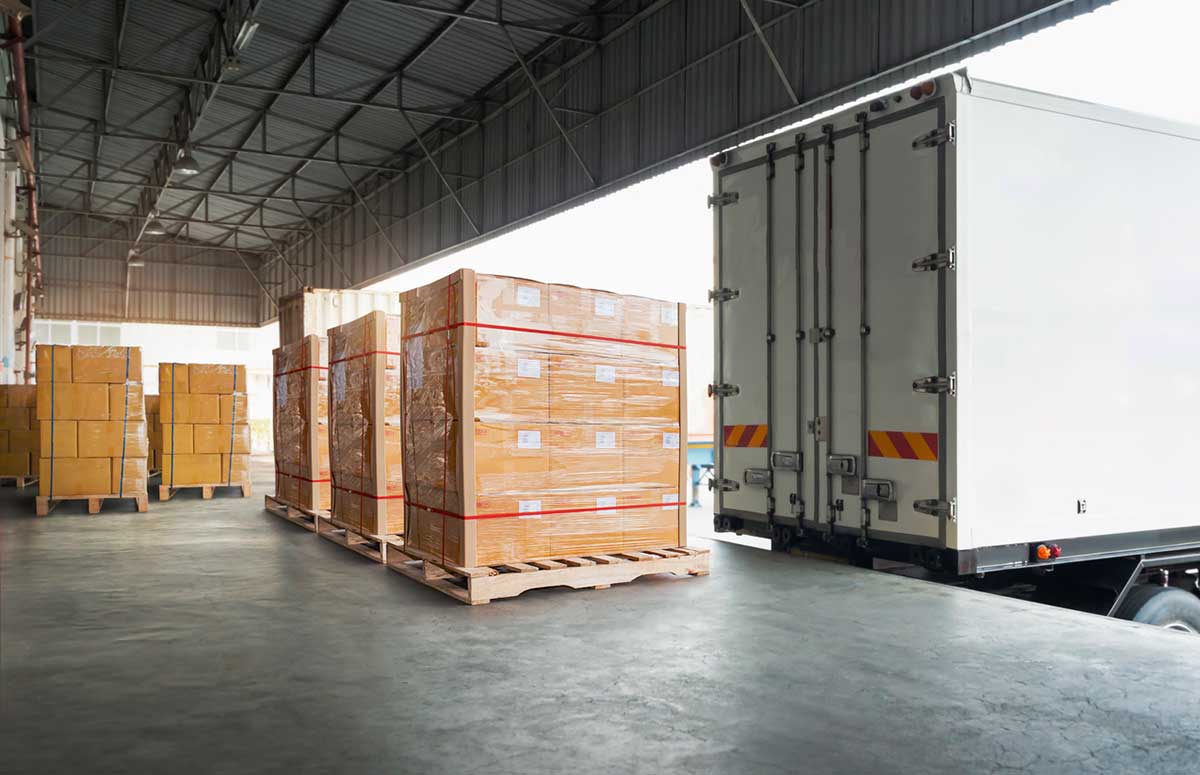
What is Less-than-Truckload (LTL)?
Less-than-Truckload (LTL) is a way to ship goods that are bigger than a parcel but smaller than what fills a full truckload. LTL carriers usually handle 1 to 6 pallets, weighing from 500 to 15,000 pounds. The shipment moves through the carrier’s network, stopping at several terminals before reaching its final destination. Along the way, the shipment is loaded and unloaded multiple times. Less than load freight is a cost-effective option for shippers who have larger items that parcel carriers won’t take but don’t need an entire truck.
How does LTL work?
Pickup and Delivery
Pick & Deliver (P&D) drivers pick up and deliver LTL shipments. In the morning, the terminal loads the driver’s trailer with shipments to drop off. After making deliveries, the driver picks up local shipments that the dispatcher has scheduled. This is the usual process, though there are some exceptions, like drop trailer programs.
Linehaul Operations
Linehaul refers to the internal movement of freight in less-than-truckload network. Carriers load trailers to full capacity with similar shipments headed in the same direction. The linehaul driver then transports the loaded trailer to the next terminal, where shipments are separated and consolidated with others going to the same destination.
How is Less-than-Truckload freight rated?
LTL Less than Truckload pricing depends on the carrier and factors like size, weight, freight class, fuel surcharges, and extra services. This pricing may seem complicated, but using a Transportation Management System (TMS) makes it easy for shippers to get instant rates. Most TMS tools also let shippers compare rates from different carriers in real-time. Learn more about how TMS Systems rate shipments here.
The Advantages and Disadvantages of LTL Shipping
When deciding whether to use LTL shipping, here are some key points to consider:
Advantages
- Cost-effective: Shippers pay only for the space they use, not for a full truck.
- Service Flexibility: Carriers provide options like lift gate trucks to make loading and unloading easier.
- Technology: Many carriers use EDI/API systems for easy rating and tracking.
Disadvantages
- Additional costs: Misclassifying shipments or missing services can lead to extra charges. Freight audits can help avoid these costs.
- Transit Times: Shipments might face delays because of network movements, but guaranteed services can reduce this risk.
- Damages: Loading and unloading often can increase the chance of shipment damage.
Understanding the Importance of the Bill of Lading in LTL Shipping
This type of shipping needs a detailed record on the bill of lading. The document includes pickup and delivery details, the shipment’s weight, the space it uses, required LTL services, and other important information. The bill of lading is crucial for all modes of freight shipping.
An Example of a Hardware Manufacturer
A hardware manufacturer in Exton, PA, needs to ship 2 pallets to a job site in Raleigh, NC. The shipment is too big for UPS or FedEx, and using their own driver would cost too much. So, the manufacturer chooses an LTL carrier. The shipment is planned with special services like liftgate and limited access to ensure it arrives safely at the construction site. The carrier picks it up, moves it to the next terminal, and arranges delivery. This option saves money and meets the manufacturer’s needs, without the high cost of using a dedicated truck.
Partnering with a 3PL Logistics Solutions Provider
Working with a 3PL logistics provider gives shippers access to both regional and national carriers, helping them find the best shipping routes. A 3PL can also provide extra services like checking freight invoices, managing claims, and using technology to make LTL shipments easier to handle.
More on Less-than-Truckload